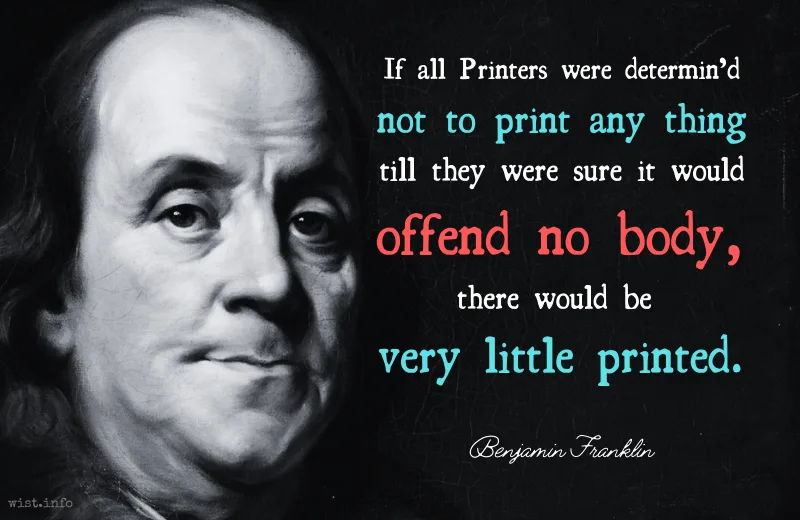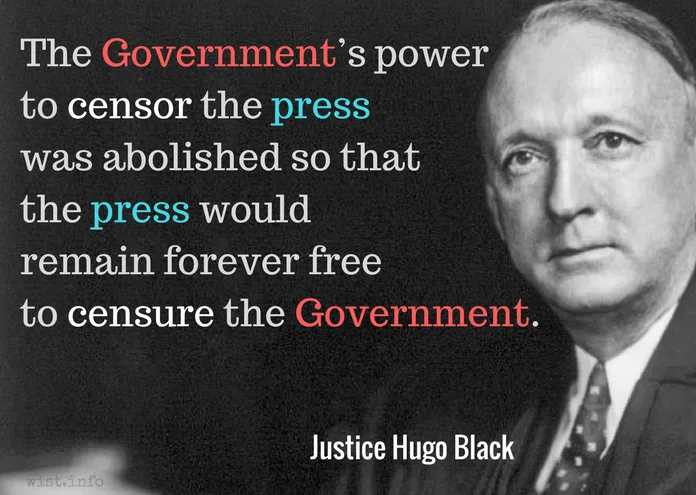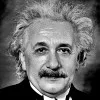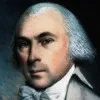Truth ensures trust, but not victory, or even happiness.
Penelope Fitzgerald (1916-2000) Novelist, poet, essayist, biographer
Human Voices, ch. 1 (1980)
(Source)
Writing of BBC News during World War 2.
Quotations about:
media
Note not all quotations have been tagged, so Search may find additional quotes on this topic.
KYLE: It’s all real. Think about it. Haven’t Luke Skywalker and Santa Claus affected your lives more than most real people in this room? I mean, whether Jesus is real or not, he’s had a bigger impact on the world than any of us have. And the same could be said of Bugs Bunny and Superman and Harry Potter. They’ve changed my life, changed the way I act on the Earth. Doesn’t that make them kind of “real”? They might be imaginary, but they’re more important than most of us here. And they’re all gonna be around long after we’re dead. So in a way, those things are more realer than any of us.
Trey Parker (b. 1969) American actor, animator, writer, musician [Randolph Severn "Trey" Parker III]
South Park, 11×12 “Imaginationland Episode III” (2007-10-31) [with Matt Stone, Brian Graden]
(Source)
If you put together all the ingredients that naturally attract children — sex, violence, revenge, spectacle and vigorous noise — what you have is grand opera.
Judith Martin (b. 1938) American author, journalist, etiquette expert [a.k.a. Miss Manners]
Miss Manners’ Guide to Excruciatingly Correct Behavior, Part 9 “Advanced Civilization,” “Play” (1983)
(Source)
If all the People of different Opinions in this Province would engage to give me as much for not printing things they don’t like, as I can get by printing them, I should probably live a very easy Life; and if all Printers were every where so dealt by, there would be very little printed.
Benjamin Franklin (1706-1790) American statesman, scientist, philosopher, aphorist
“Apology for Printers,” Philadelphia Gazette (1731-06-10)
(Source)
It is unreasonable to imagine Printers approve of every thing they print, and to censure them on any particular thing accordingly; since in the way of their Business they print such great variety of things opposite and contradictory. It is likewise as unreasonable what some assert, That Printers ought not to print any Thing but what they approve; since if all of that Business should make such a Resolution, and abide by it, an End would thereby be put to Free Writing, and the World would afterwards have nothing to read but what happen’d to be the Opinions of Printers.
Benjamin Franklin (1706-1790) American statesman, scientist, philosopher, aphorist
“Apology for Printers,” Philadelphia Gazette (1731-06-10)
(Source)
Being thus continually employ’d in serving all Parties, Printers naturally acquire a vast Unconcernedness as to the right or wrong Opinions contain’d in what they print; regarding it only as the Matter of their daily labour: They print things full of Spleen and Animosity, with the utmost Calmness and Indifference, and without the least Ill-will to the Persons reflected on; who nevertheless unjustly think the Printer as much their Enemy as the Author, and join both together in their Resentment.
Benjamin Franklin (1706-1790) American statesman, scientist, philosopher, aphorist
“Apology for Printers,” Philadelphia Gazette (1731-06-10)
(Source)
That hence arises the peculiar Unhappiness of that Business, which other Callings are no way liable to; they who follow Printing being scarce able to do any thing in their way of getting a Living, which shall not probably give Offence to some, and perhaps to many; whereas the Smith, the Shoemaker, the Carpenter, or the Man of any other Trade, may work indifferently for People of all Persuasions, without offending any of them: and the Merchant may buy and sell with Jews, Turks, Hereticks, and Infidels of all sorts, and get Money by every one of them, without giving Offence to the most orthodox, of any sort; or suffering the least Censure or Ill-will on the Account from any Man whatever.
Benjamin Franklin (1706-1790) American statesman, scientist, philosopher, aphorist
“Apology for Printers,” Philadelphia Gazette (1731-06-10)
(Source)
Printers are educated in the Belief, that when Men differ in Opinion, both Sides ought equally to have the Advantage of being heard by the Publick; and that when Truth and Error have fair Play, the former is always an overmatch for the latter: Hence they chearfully serve all contending Writers that pay them well, without regarding on which side they are of the Question in Dispute.
Benjamin Franklin (1706-1790) American statesman, scientist, philosopher, aphorist
“Apology for Printers,” Philadelphia Gazette (1731-06-10)
(Source)
It is as unreasonable in any one Man or Set of Men to expect to be pleas’d with every thing that is printed, as to think that nobody ought to be pleas’d but themselves.
Benjamin Franklin (1706-1790) American statesman, scientist, philosopher, aphorist
“Apology for Printers,” Philadelphia Gazette (1731-06-10)
(Source)
If all Printers were determin’d not to print any thing till they were sure it would offend no body, there would be very little printed.
Benjamin Franklin (1706-1790) American statesman, scientist, philosopher, aphorist
“Apology for Printers,” Philadelphia Gazette (1731-06-10)
(Source)
If you’re not careful, the newspapers will have you hating the people who are being oppressed, and loving the people who are doing the oppressing.
Malcolm X (1925-1965) American revolutionary, religious leader [b. Malcolm Little]
Speech, Audubon Ballroom, Harlem, New York (13 Dec 1964)
(Source)
She’d stopped reading the kind of women’s magazine that talks about romance and knitting and started reading the kind of women’s magazine that talks about orgasms, but apart from making a mental note to have one if ever the occasion presented itself she dismissed them as only romance and knitting in a new form.
Terry Pratchett (1948-2015) English author
Good Omens, 3. “Wednesday” (1990) [with Neil Gaiman]
(Source)
What television does is rent us friends and relatives who are quite satisfactory. The child watching TV loves these people, you know — they’re in color, and they’re talking to the child. Why wouldn’t a child relate to these people? And you know, if you can’t sleep at 3 o’clock in the morning, you can turn on a switch, and there are your friends and relatives, and they obviously like you. And they’re charming. Who wouldn’t want Peter Jennings for a relative? This is quite something, to rent artificial friends and relatives right inside the house.
Kurt Vonnegut, Jr. (1922-2007) American novelist, journalist
“The Salon Interview: Kurt Vonnegut,” interview by Frank Houston, Salon (8 Oct 1999)
(Source)
It is a melancholy truth that a suppression of the press could not more compleatly deprive the nation of its benefits, than is done by its abandoned prostitution to falsehood. Nothing can now be believed which is seen in a newspaper. Truth itself becomes suspicious by being put into that polluted vehicle. […] I will add that the man who never looks into a newspaper is better informed than he who reads them; inasmuch as he who knows nothing is nearer to truth than he whose mind is filled with falsehoods & errors. He who reads nothing will still learn the great facts, and the details are all false.
Thomas Jefferson (1743-1826) American political philosopher, polymath, statesman, US President (1801-09)
Letter (1807-06-11) to John Norvell
(Source)
Good news goes unnoticed. This is a well-known property of the press in the free world. Improvements are never dramatic. Life improves slowly and goes wrong fast, and only catastrophe is clearly visible.
Edward Teller (1908-2003) Hungarian-American theoretical physicist
The Pursuit of Simplicity (1980)
(Source)
Fascism, after all, is not only a historical term; it describes a modern style of authoritarian rule that seeks to mobilize the masses by appealing to nationalism, xenophobia, and populist resentment. Its trademark is the use of democratic procedure even as it seeks to destroy the substantive values of democracy from within. It disdains the free press and seeks to undermine its credibility in the public sphere.
Peter E, Gordon (b. 1966) American intellectual historian
“Why Historical Analogy Matters,” New York Review of Books (7 Jan 2020)
(Source)
A newspaper, as I’m sure you know, is a collection of supposedly true stories written down by writers who either saw them happen or talked to people who did. These writers are called journalists, and like telephone operators, butchers, ballerinas, and people who clean up after horses, journalists can sometimes make mistakes.
Lemony Snicket (b. 1970) American author, screenwriter, musician (pseud. for Daniel Handler)
The Vile Village, ch. 1 (2001)
(Source)
There are those in the industry who believe broadcasting can move men, and even some who believe it could move mountains, but they are outnumbered by those who believe all it has to do is move goods.
Alexander Kendrick (1910-1991) American journalist
Prime Time: The Life of Edward R. Murrow (1969)
(Source)
The moment we no longer have a free press, anything can happen. What makes it possible for a totalitarian or any other dictatorship to rule is that people are not informed; how can you have an opinion if you are not informed?
Hannah Arendt (1906-1975) German-American philosopher, political theorist
Interview (1973-10) with Roger Errera, Office de Radiodiffusion-Télévision Française (ORTF)
(Source)
Other parts of this interview were turned into an episode of the French TV series "Un certain regard," directed by Jean-Claude Lubtchansky, first broadcast 1974-07-06.
This portion of the interview was published in The New York Review of Books (1978-10-26).
The methods by which the “Empire of Business” maintains its control over journalism are four: First, ownership of the papers; second, ownership of the owners; third, advertising subsidies; and fourth, direct bribery. By these methods there exists in America a control of news and of current comment more absolute than any monopoly in any other industry.
Upton Sinclair (1878-1968) American writer, journalist, activist, politician
The Brass Check, ch. 38 “Owning the Press” (1919)
(Source)
As a woman, I find it very embarrassing to be in a meeting and realize I’m the only one in the room with balls.
Rita Mae Brown (b. 1944) American author, playwright
Starting from Scratch: A Different Kind of Writer’s Manual (1988)
(Source)
On working in the TV and film industry.
If television and radio are to be used to entertain all of the people all of the time, then we have come perilously close to discovering the real opiate of the people.
Edward R. Murrow (1908-1965) American journalist
Interview, Television Magazine (Jul 1957)
(Source)
Also cited in various places as being a speech given at Brandeis University (1958), and (incorrectly) upon receiving the Einstein Award (5 May 1957). Sometimes quoted as "used for the entertainment of the people" and "used for the entertainment of all of the people."
This instrument can teach. It can illuminate. Yes, and it can even inspire. But it can do so only to the extent that humans are determined to use it to those ends. Otherwise, it is merely wires and lights in a box.
Life is not made up of dramatic incidents — even the life of a nation. It is made up of slowly evolving events and processes, which newspapers, by a score of different forms of emphasis, can reasonably attempt to explore from day to day. But television news jerks from incident to incident. For the real world of patient and familiar arrangements, it substitutes an unreal world of constant activity, and the effect is already apparent in the way which the world behaves. It is almost impossible, these days, to consider any problem or any event except as a crisis; and, by this very way of looking at it, it in fact becomes a crisis.
In the First Amendment, the Founding Fathers gave the free press the protection it must have to fulfill its essential role in our democracy. The press was to serve the governed, not the governors. The Government’s power to censor the press was abolished so that the press would remain forever free to censure the Government. The press was protected so that it could bare the secrets of government and inform the people. Only a free and unrestrained press can effectively expose deception in government. And paramount among the responsibilities of a free press is the duty to prevent any part of the government from deceiving the people and sending them off to distant lands to die of foreign fevers and foreign shot and shell.
Hugo Black (1886-1971) American politician and jurist, US Supreme Court Justice (1937-71)
New York Times Co. v. United States 403 U.S. 713, 717 (1971) [concurring]
(Source)
A democracy is badly served when newspapers and television focus so intensely on the personal joys and tragedies of famous people. This kind of “news” crowds out more serious issues, and there is an important difference — as the Constitution’s framers well knew, and as many people today appear to have forgotten — between the public interest and what interests the public.
Reading after a certain age diverts the mind too much from its creative pursuits. Any man who reads too much and uses his own brain too little falls into lazy habits of thinking, just as the man who spends too much time in the theater is tempted to be content with living vicariously instead of living his own life.
Every time you think television has hit its lowest ebb, a new type program comes along to make you wonder where you thought the ebb was.
Art Buchwald (1925-2007) American humorist, columnist
Have I Ever Lied to You?, ch. 4 “Live and In Color” (1968)
(Source)
Mister Marvin Middle Class is really in a stew
Wond’rin’ what the younger generation’s coming to
And the taste of his martini doesn’t please his bitter tongue
Blame it on the Rolling Stones.
Blame it on the Stones; blame it on the Stones
You’ll feel so much better, knowing you don’t stand alone
Join the accusation; save the bleeding nation
Get it off your shoulders; blame it on the Stones.
It’s important to remember that the relationship between different media tends to be complementary. When new media arrive they don’t necessarily replace or eradicate previous types. Though we should perhaps observe a half second silence for the eight-track. — There that’s done. What usually happens is that older media have to shuffle about a bit to make space for the new one and its particular advantages. Radio did not kill books and television did not kill radio or movies — what television did kill was the cinema newsreel.
MILNE: No matter how imperfect things are, if you’ve got a free press everything is correctable, and without it everything is concealable.
RUTH: I’m with you on the free press. It’s the newspapers I can’t stand.
The country’s 24 hour political pundit perpetual panic conflictinator did not cause our problems but its existence makes solving them that much harder. The press can hold its magnifying up to our problems, bringing them into focus, illuminating issues heretofore unseen — or they can use that magnifying glass to light ants on fire, and then perhaps host a week of shows on the sudden, unexpected, dangerous flaming ant epidemic. If we amplify everything we hear nothing.
The basis of our governments being the opinion of the people, the very first object should be to keep that right; and were it left to me to decide whether we should have a government without newspapers, or newspapers without a government, I should not hesitate a moment to prefer the latter.
Thomas Jefferson (1743-1826) American political philosopher, polymath, statesman, US President (1801-09)
Letter (1787-01-16) to Edward Carrington
(Source)
If one morning I walked on top of the water across the Potomac River, the headline that afternoon would read: “President Can’t Swim.”
When you’re young, you look at television and think, There’s a conspiracy. The networks have conspired to dumb us down. But when you get a little older, you realize that’s not true. The networks are in business to give people exactly what they want. That’s a far more depressing thought. Conspiracy is optimistic! You can shoot the bastards! We can have a revolution! But the networks are really in business to give people what they want. It’s the truth.
No experiment can be more interesting than that we are now trying, and which we trust will end in establishing the fact, that man may be governed by reason and truth. Our first object should therefore be, to leave open to him all the avenues to truth. The most effectual hitherto found, is the freedom of the press. It is therefore, the first shut up by those who fear the investigation of their actions.
Thomas Jefferson (1743-1826) American political philosopher, polymath, statesman, US President (1801-09)
Letter (1804-06-28) to John Tyler
(Source)
Here’s the way I look at it. President Bush has uranium-tipped bunker busters and I have puns. I think he’ll be okay.
Jon Stewart (b. 1962) American satirist, comedian, and television host. [b. Jonathan Stuart Leibowitz]
Interview, Rolling Stone (2006-10-31)
(Source)
On political satire.
Everybody wrings their hands about Fox News. You know, “fair and balanced? Why, that’s snide!” Yeah, okay, maybe they’re not fair and balanced, but CNN used to have the slogan “You Can Depend on CNN”. Guess what? I watch it, no you can’t. So what’s the difference?
Perhaps an editor might begin a reformation in some such way as this. divide his paper into 4. chapters, heading the 1st. Truths. 2d. Probabilities. 3d. Possibilities. 4th. Lies. The 1st. chapter would be very short, as it would contain little more than authentic papers, and information from such sources as the editor would be willing to risk his own reputation for their truth. The 2d. would contain what, from a mature consideration of all circumstances, his judgment should conclude to be probably true. This however should rather contain too little than too much. The 3d. & 4th. should be professedly for those readers who would rather have lies for their money than the blank paper they would occupy.
Thomas Jefferson (1743-1826) American political philosopher, polymath, statesman, US President (1801-09)
Letter (1807-06-14) to John Norvell
(Source)
I think the metric by which television is considered liberal is literally based on the metric of liberalism in each person’s soul. Peoples’ senses of humor tend to go about as far as their ideology.
Jon Stewart (b. 1962) American satirist, comedian, and television host. [b. Jonathan Stuart Leibowitz]
“No News Is Good News,” interview by Adam Bulger, The Hartford Advocate (2008-06-12)
(Source)
On whether The Daily Show is liberal.
A popular government without popular information, or the means of acquiring it, is but a prologue to a farce or a tragedy; or, perhaps, both. Knowledge will forever govern ignorance. And a people who mean to be their own governors must arm themselves with the power which knowledge gives.
The speed of communications is wondrous to behold. It is also true that speed can multiply the distribution of information that we know to be untrue. The most sophisticated satellite has no conscience. The newest computer can merely compound, at speed, the oldest problem in the relations between human beings and in the end the communicator will be confronted with the old problem of what to say and how to say it.
Edward R. Murrow (1908-1965) American journalist
Speech, The Family of Man Award, The Protestant Council of New York (Oct 1964)
(Source)
His last public speech. Reprinted in Alexander Kendrick, Prime Time: The Life of Edward R. Murrow (1969).
In revealing the workings of government that led to the Vietnam War, the newspapers nobly did precisely that which the Founders hoped and trusted they would do.
Hugo Black (1886-1971) American politician and jurist, US Supreme Court Justice (1937-71)
New York Times Co. v. United States, 403 U.S. 713, 717 (1971) [concurring]
(Source)
CALVIN: Oh, Great Altar of Passive Entertainment … Bestow upon me thy discordant images at such speed as to render linear thought impossible!
ROSENCRANTZ: Many wearing rapiers are afraid of goosequills.
William Shakespeare (1564-1616) English dramatist and poet
Hamlet, Act 2, sc. 2, l. 366ff (2.2.366) (c. 1600)
(Source)
Par-runts of rugmonkeys everywhere are worrying that their children will want to become Force-wielding breath masked Sithlords? Sweet Cream-of-Jesus on TOAST POINTS, people!! So now we have to fear that every crib-lizard that loves Anakin Skywalker will become Evil Incarnate. It’s been a lovely planet, but I think I need to go, now.











































